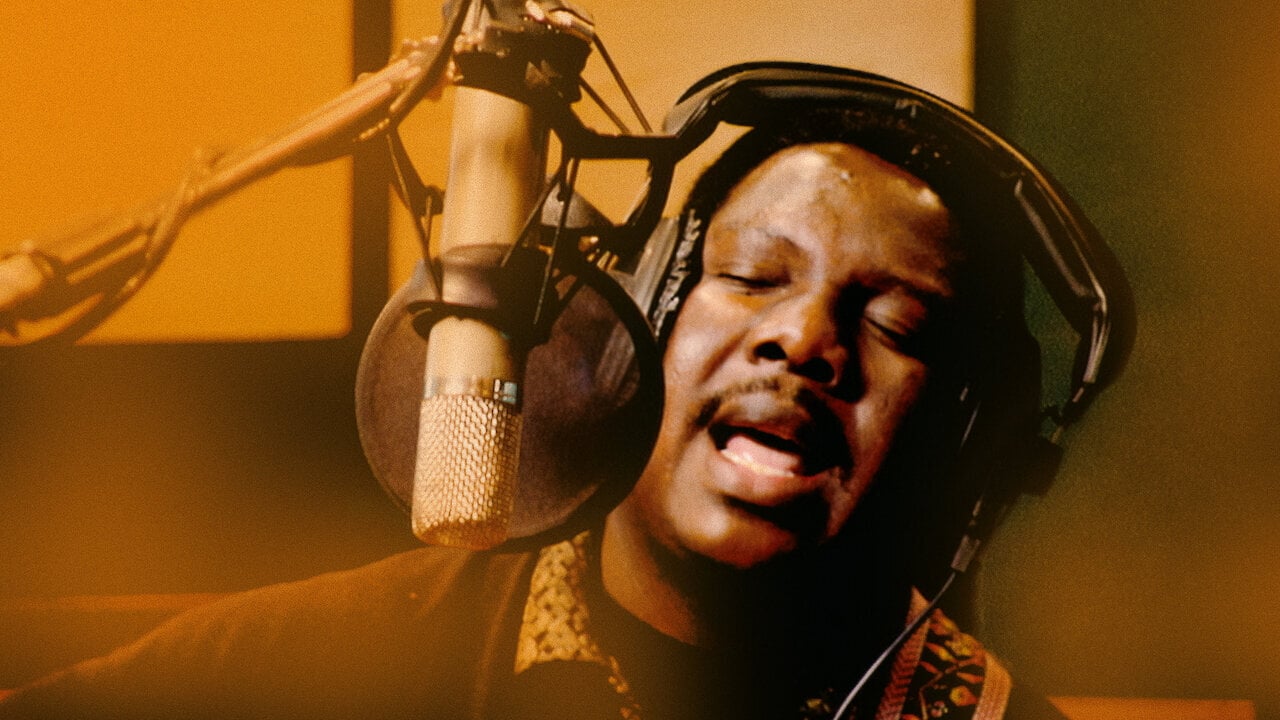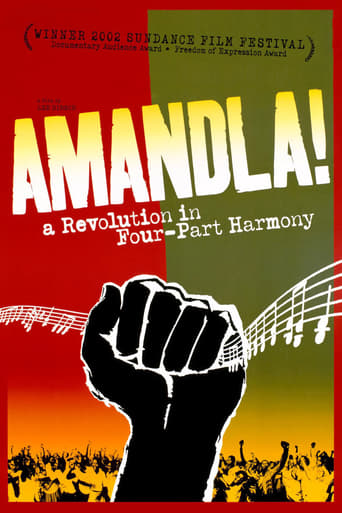



What makes it different from others?
Good story, Not enough for a whole film
A different way of telling a story
Worth seeing just to witness how winsome it is.
I know this is a minority opinion, and I think if I was South African I would have been very moved by the film. But I just did not understand the issues well enough or know the history and weight of the people interviewed, except for Miriam Mekeba and Hugh Masekela. The film would have worked better for me if it had provided more background and focus for an uninformed American. It certainly never answered the first question I had: how can an entire nation sing so beautifully in four-part harmony? It must have seemed so normal to the filmmakers that they never even noticed that question. But for me, in a world where very few non-professional people know how to sing harmony, it's a stumper.
View MoreSometimes, we seem to forget that apartheid was only eliminated in 1994. "Amandla! A Revolution In Four Part Harmony" tells of how the black South Africans used music to help them overcome the Draconian oppression installed by the white population. Naturally, we get to hear from Nelson Mandela, Winnie Mandela, and Miriam Makeba, but also from ordinary people, and how they individually used music. One of the most chilling scenes was the footage of Hendrik Verwoerd, who was prime minister of South Africa from 1958 until his assassination in 1966. He said in the interview something to the effect of: "People have misunderstood apartheid. It's really a policy of good-neighborliness." As you might imagine, the black population had plenty to say (and sing) about him.I actually used this documentary as one of the sources in a paper that I wrote for an assignment in German class in Lewis & Clark College in spring, 2004. I had watched the documentary in a class called Introduction to World Music. In the German class, we were talking about various aspects of the Third Reich. I explained in the paper that apartheid's policies were basically the same as the Third Reich. I made double sure to cite the interview with Hendrik Verwoerd to show just how vile these people were.
View MoreThe definitive documentary for illustrating the struggle of the black South Africans,as told through the eyes of the White prison guards and executioners, black activists & Musicians. Some of the straight forward comments from the black activists, remain embellished in my mind."The train was Africa's first tragedy" (highlighting the need for the large corporates to mobilise the cheap black labour)& "We were treated like s*** and we still never smashed the place up"(showing how much they loved their country) The way in which the townships and their matchbox houses were quickly erected, and then demolished so that the black labour could be moved on to the next corporate project,effectively explains how black labour is no more than a dispensable and renewable chattel, a sort of nomadic feudalism destroying any sense of community. And finally the music which puts to shame the commercialised manufactured dross we hear on today's radio, masquerading as Jazz & Blues.The superb piece of music towards the end in the dark dingy club,where the female black singer with the haunting pitch delivers the names of those who died in the struggle,would moisten the eyes of the most hardened cynic.Could the world be in for an explosive treat of Black South African roots, jazz, rhythm and blues music? I hope so.
View More"Amandla! A Revolution in Four-Part Harmony" is a documentary that is riveting and educational, uplifting and heartbreaking. The contrasts are all laid bare in this project, making it a worthwhile film to watch.The focal point of the documentary is the role music played in the lives of South Africans as they endured and overcame the Apartheid movement. Director Leon Hirsch interviews a number of singers, composers, DJs and freedom fighters, young and old. He follows the history of Apartheid by tracing the music that came out of the struggle and what happened to those who created it.I think what grabbed me was how much of a role music plays in great periods of change. It was also a driving force of African-Americans in the U.S. who were fighting segregation during the 60s. The spirituals that buoyed them share a similar history to those songs sung in South Africa.The music chosen was a wonderful collection I want to hear again. I also enjoyed seeing the laughter of many of the singers as they looked at old photographs, remembering younger days.I also liked that Hirsch interviewed a white freedom fighter who was sent to Pretoria prison for several years. His interviews with the white Afrikkaners who formerly worked as riot police and jailers are chilling but necessary. My hope is that more Americans will see this film so they fully realize the scope of Apartheid in South Africa and what a triumph it was to see it overturned. Was it really 1994 when black South Africans were finally allowed to vote? It breaks my heart.As a teenager in the 80s, I knew hardly anything about Apartheid. This film did a good job in changing that.
View More